The Most Reliable Parental Control App
FamiSafe lets parents monitor Hinge dating, control screen time, track real-time location and detect inappropriate content on kids' devices.
24% of teen daters or about 8% of all teens have dated or hooked up with someone they met online. Online dating has come quite far from its beginning. More people are signing up on dating sites, and several options are available. Gone are the days of usernames when signing up on dating sites. Today, GPS tracking and the amount of information available on dating apps and websites make the concept even more dangerous. One of the popular dating apps is Hinge. Some of the common questions about this app are ‘is hinge a safe dating app?’ and ‘how safe is hinge?’ This article attempts to answer all your questions; let’s take a look.
Part 1. What Is Hinge?
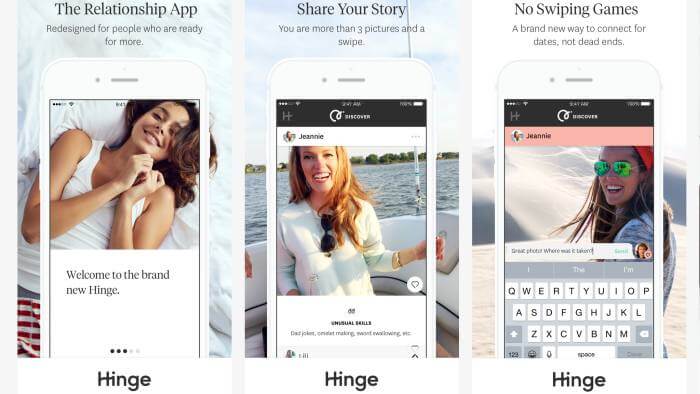
Hinge is a location-based app just like Tinder which was the first of its type to hit the mainstream. There have been so many generations of dating apps and websites that it’s normal to wonder what Hinge is all about. However, most would agree that Hinge is much more serious than Tinder. It allows users to sign up with their Facebook account or phone number. Hinge offers a feature that makes it different from Tinder: you can like some part of a person’s profile instead of swiping left and right. However, like every location-based dating app, it is never entirely safe.
Part 2. Is Hinge Safe to Use?
With Hinge users increasing, ‘is Hinge a safe dating app?’ is becoming even more common. The question ‘is Hinge safe to use?’ is vital if you’re sharing information with a dating app. Although Hinge is reasonably safe to use, it still has some dangers you should not ignore. We already know it’s safer than Tinder, but is it safer than several other dating apps. They offer better encryption and more customer service. Additionally, they ask for more details from users than other dating apps. Below are some excellent features that distinguish Hinge from other dating apps.
Sign-in
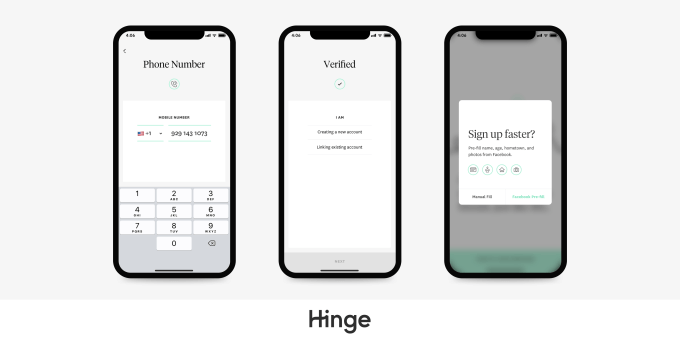
To get started with Hinge and verify their profile, users no longer have to log in with their Facebook. Instead, they have the choice between Facebook and their mobile number. Although using Facebook is easier because it automatically uploads your photos and numbers, you can now choose to provide your information manually.
It Connects You with Friends of Friends
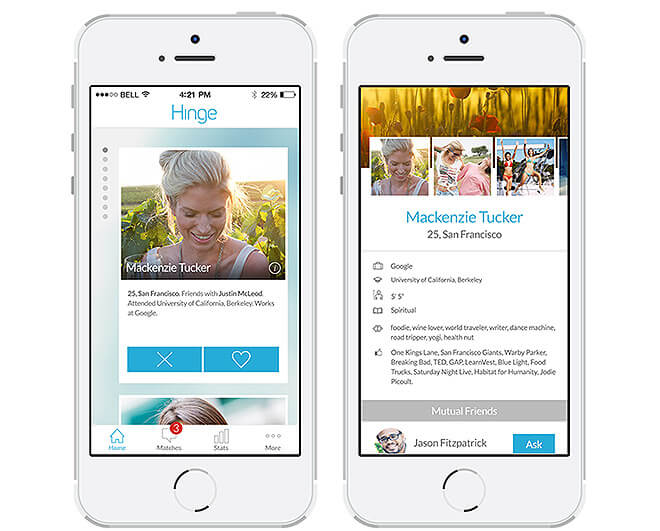
While Hinge doesn’t appear with your Facebook profile, it uses your social network circles to match you with other people. Hinge connects you with Facebook friends of friends, which helps to limit the danger of connecting with strangers. Instead, it connects you with your social circles, unlike other dating apps.
No More Swiping
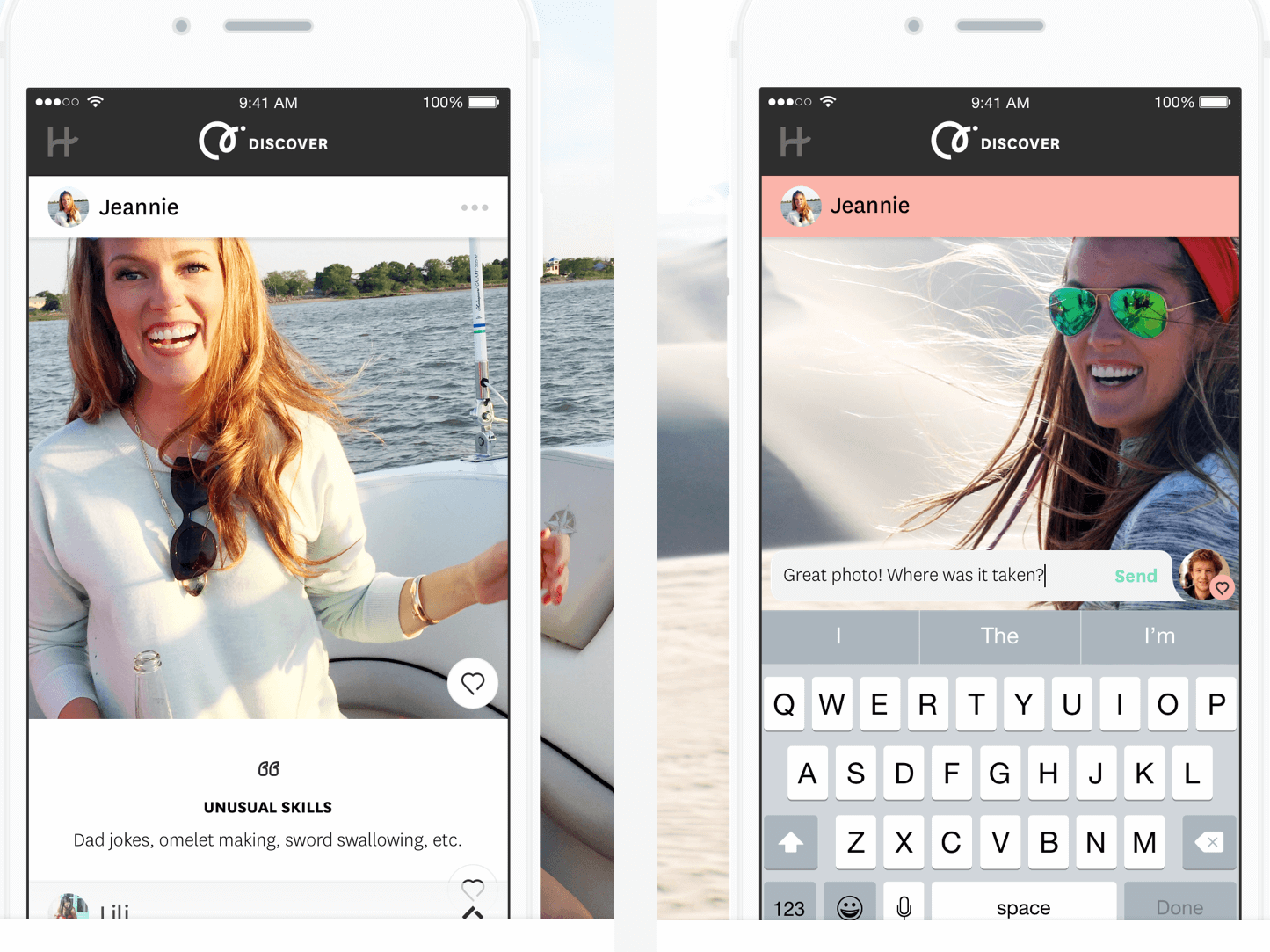
Unlike other apps like Tinder, which requires you to swipe left and right to match other users, Hinge offers you another method to match with people on the app. Hinge requires users to go through someone’s profile and like some parts of it to start a conversation. It could be their images or little notes about themselves. This helps to encourage more consideration and helps users begin a conversation. This method allows users to pay attention to their matches and establish a real relationship beyond their pictures.
Part 3. What Potential Risks May Teens Get From Hinge?
As more teens take to dating sites to make connections and meet people, there are still some dangers parents need to notice. Although it is a great way to meet people and socialize, there are potential risks for teens on Hinge. Below are some of the risks you need to be wary of.
Fake Accounts

Research by Phactual reveals that 10% of profiles on free dating sites are fake. People on the web are not always honest about their identities. Therefore, it is easy for a teen to be cat-fished on dating apps like Hinge. Cat-fishing is when someone lures you into a relationship using a fake persona. Such a person might be in a real-life relationship, leading to a broken heart for your teen when they find out the truth about the fake account. A red flag that informs you that it’s a fake account is when the person you’re dating on Hinge refuses to meet in person after months of interaction. This could mean that they’re not really who they say they are.
Identity Theft
Another danger on Hinge is the possibility of identity theft on the app. Putting your address and other personal information on Hinge can lead to a host of problems for your teen. This includes identity theft like harassment and stalking. Signing up on Hinge requires providing lots of personal formation. Any user can use this information to start stalking you or your family members. Sharing information that can also lead to your family members can also open them up to the danger of harassment.
Risk of Scammers
Another potential risk to teenagers on Hinge is the risk of coming across scammers. Online safety and security are not guaranteed in the cyber world. Although most people have met and feel like they trust their online partner, you might just be a victim of scamming sometimes. Some people on Hinge just try to gain the trust of teenagers and then get them to send them funds or share their bank account details. Some aim at collecting your ID number or pretend to want a relationship and get your pictures that they can then use in blackmailing teens. That’s why sharing personal and financial information is a bad idea, especially if you’ve never met the person or had a chance to build trust over time.
Human Trafficking
There’s being a recent rise in human trafficking, and it is a potential risk for teens on Hinge. Most traffickers use dating apps to lure teens into dangerous situations. Although this doesn’t mean you shouldn’t meet up with people you meet online, it is essential to learn how to be safe. Meeting up with strangers is never a great idea because there’s no way to tell the intentions of the person you’re meeting. Be suspicious if your new lover offers you a job or asks you to model or travel with them.
Risk of Sexual Assaults
A Phactual study shares that one in every ten sex offenders is on a dating site. Their goal is to meet new people. At the same time, 25% of rapists use online dating apps to find their victims. There’s no way to know a person’s actual intention when you meet them online. It’s also relatively easy for teens to fall victim to crimes like sexual assault while on dating apps like Hinge. Most sex offenders pretend to be younger than they are to lure teens closer to them. They would ask for nude pictures, sexting from a teen, and several others to satisfy their intentions.
Get some insights about the impact of social media explicit content on kids in this video.
Part 4. Is There a Way to Make It Safer for Teens to Use?
Meeting strangers on Hinge can be exciting for teens. However, you need to be cautious as these are strangers. You can take steps to increase your kid's safety when they interacting with others on online dating apps. Below are some information you can share with kids:
Avoid Connecting With Suspicious People

If the person you matched with doesn’t put up a personal picture or has no linked social media accounts, then you should be suspicious of the account. Another sign is if they only posted a single image and one that looks fake, then there are chances that it is a fake account. Therefore, you must use caution to connect with them despite the little information available.
Check Them Out on Social Media
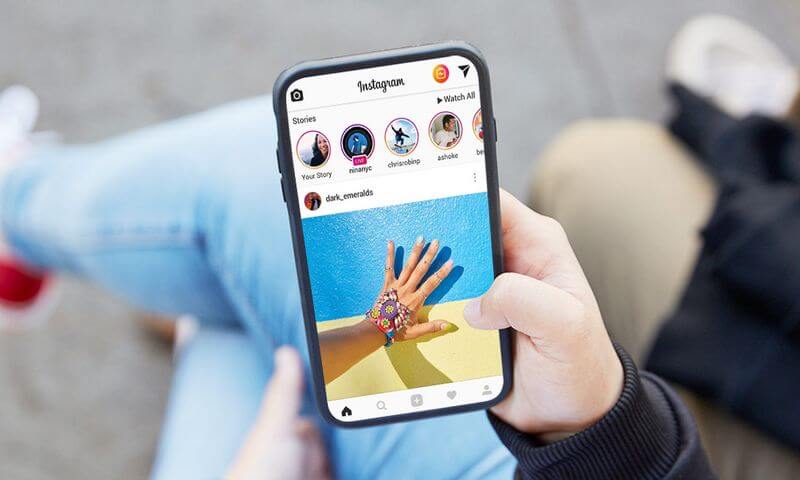
Research is a must if you’re looking for a way to protect yourself on Hinge. Hinge lets you know if you have mutual friends with the person you’re connecting with. Therefore, it might be good to check their handles on social media. This will give you insight into whether or not you’re being cat-fished or if they’re using a fake social media account for their dating profile. Alternatively, teens could run a simple Google search with their first and last name. Researching will provide you with enough information to assure you the Hinge user is really who they say they are.
Block and Report Suspicious Users
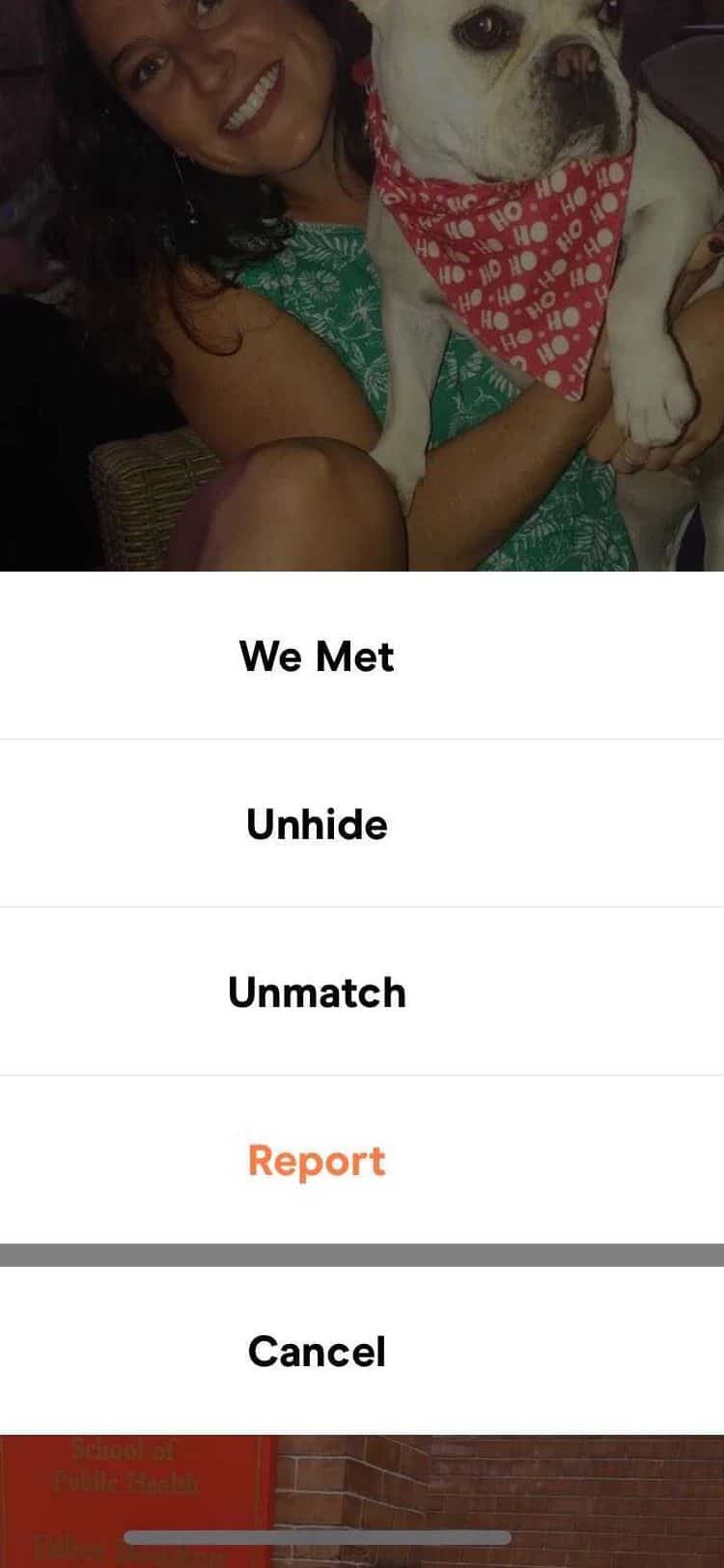
An answer to the vital question ‘how safe is Hinge?’ is that the app is as safe as you make it for yourself. Teens can block and report other Hinge users with suspicious accounts or act suspiciously towards you. Like every other personal interaction, it is easy for people on the app to misrepresent themselves when conversing with you. Some scenarios where you can block or report someone includes:
- If they ask for financial assistance in any way; most times because of a sudden personal crisis
- If they claim to be from the United States but are working or living abroad
- If they disappeared from the page and then reappeared with a new name
- If they provide vague answers to direct questions
- If they get too complimentary and romantic early in your communication
- If they pressure you to provide your mobile number to communicate outside the app
- If they request your home address under the guise of sending your gifts
- If they tell inconsistent stories
- If they send harassing and offensive messages or attempt to intimidate you
- If they request for nude pictures
Tell Someone About Them

When you’re meeting up with a person you met online, ensure you let someone know when and when you plan to meet them. Ensure you take a screenshot of the person’s profile and share it with a friend. If the date continues to somewhere previously not planned, teens should inform their friends about the new location. It could also be helpful to arrange with your friend to call or text them halfway through your date or check in with them when you finally get home.
Meet in Public Spaces

Another way to ensure your safety when meeting someone for the first date is to meet somewhere public. Teens should avoid meeting in their home or apartment or meet the person in their home or workplace. A better location would be a restaurant, coffee shop, or somewhere else with plenty of people around. Additionally, do not meet in isolated places for the first few dates. This would prevent your date from any suspicious actions.
Use Parental Control Apps
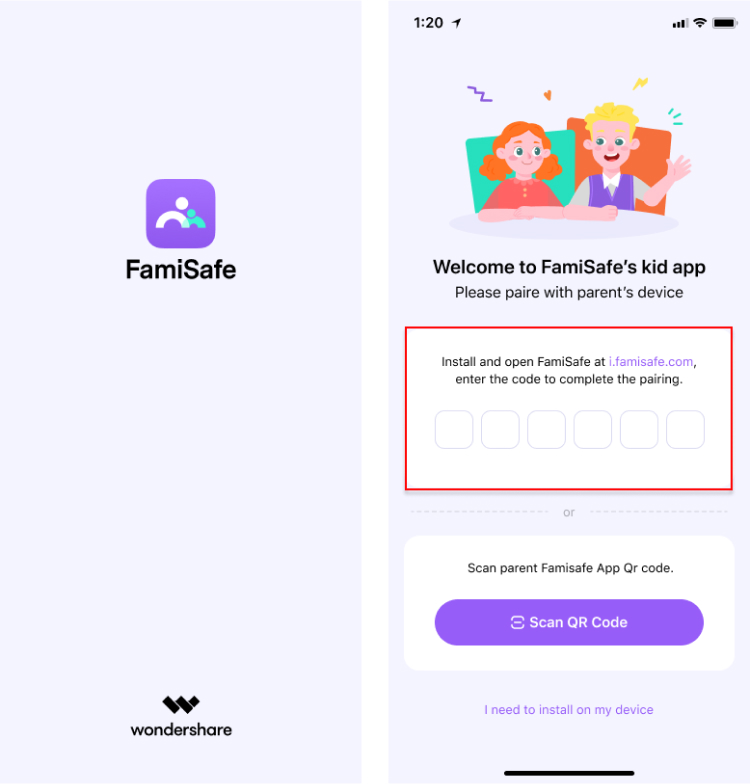
Another way to keep teens safe while using Hinge is to use parental control apps like FamiSafe. This parental supervision app allows kids to send emergency messages to report real-time location and get help from parents quickly. Besides, parents can remotely monitor teens’ online activities without invading their privacy. While you can’t view their dating details, you can use it to track their location, set a screen schedule, and block access to suspicious sites online. Setting the app up is easy once you follow the steps below.
- Step 1: Install the FamiSafe app on your device and Fammy on your teen's device. This app supports several platforms, including iOS, Android, Windows, Mac, Chromebook, and KindleFire devices. You can download it from the App Store, Google Play Store, or its official website.
- Step 2: Launch the FamiSafe app and create an account, choosing parent as your identity. Then connect your device with your kids’ using the pairing code provided.
- Step 3: Grant your teen’s device permissions to allow you access to their online actions and location.
Now you can start to monitor your kids' devices. Some of the features you can utilize includes:
- Screen Viewer: To capture real-time screenshots and receive alerts from kid's phone once detected inappropriate contents.
- App Rules: To block some dating apps or set limits for Hinge.
- Activity Report: To monitor their online activities, browsing activities, and device usage daily.
- Screentime: You can set screen time restrictions to block them from spending too much time online.
- Real-Time Location: To keep track of where your teen is and location history.
- Web Filter: To restrict access to dangerous sites and also receive notifications when they try to visit them.
Conclusion
Is Hinge a safe dating app? It’s safer than most dating apps with unique features like liking parts of a user’s profile, connecting with mutual friends, and choosing to leave out your last name. However, there are still some potential risks your teen faces on the app. This article highlights some of these risks and steps you can take to make the app safer for teens on the site. Some parental control apps can help you keep your teen safe while they’re using the Hinge, such as Wondershare Famisafe. This app ensures teen safety without infringing on their privacy. With the steps available in this article, the answer to the question ‘is Hinge safe to use?’ is simply that while it is safe to an extent, you can make it safer using the tips above.
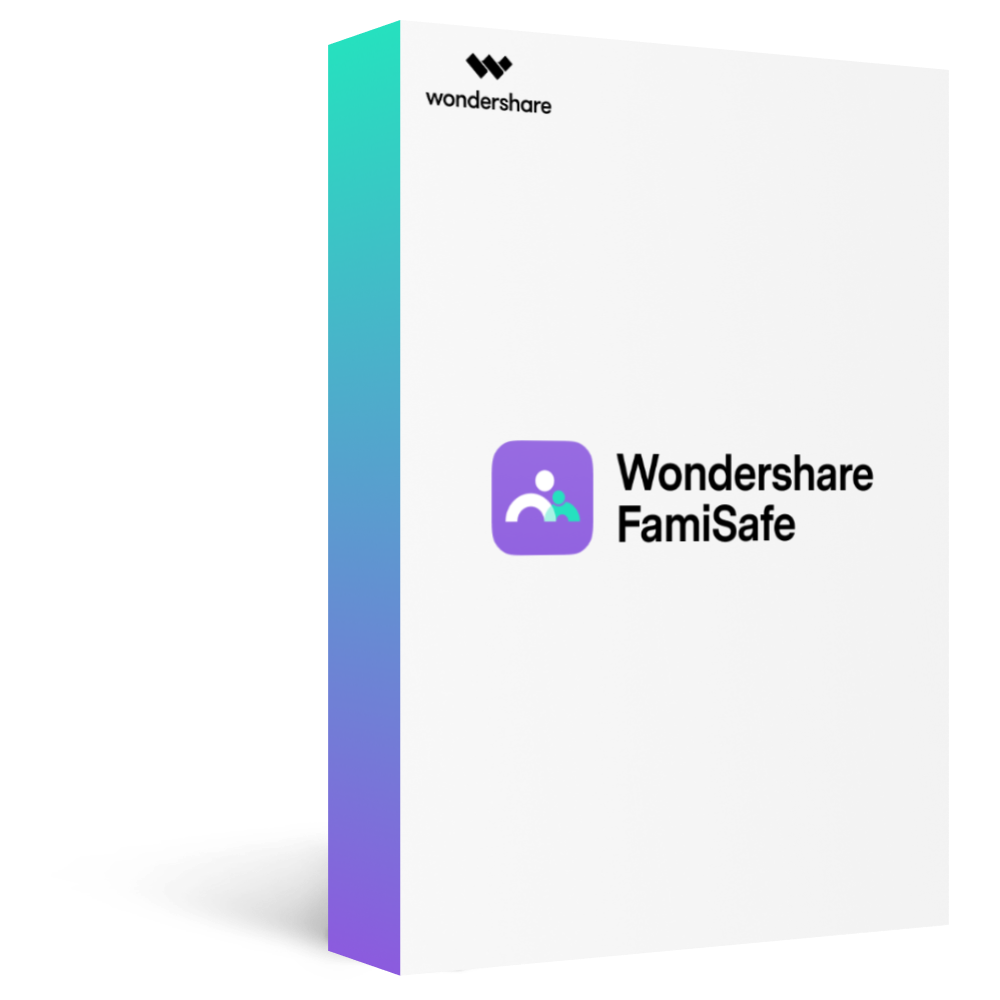
Wondershare FamiSafe - The Most Reliable Parental Control App
5,481,435 people have signed up.
Location Tracking & Geo-fencing
App Blocker & Web Filtering
Screen Time Control
Smart Parental Control Setting
Block In-app Purchase


